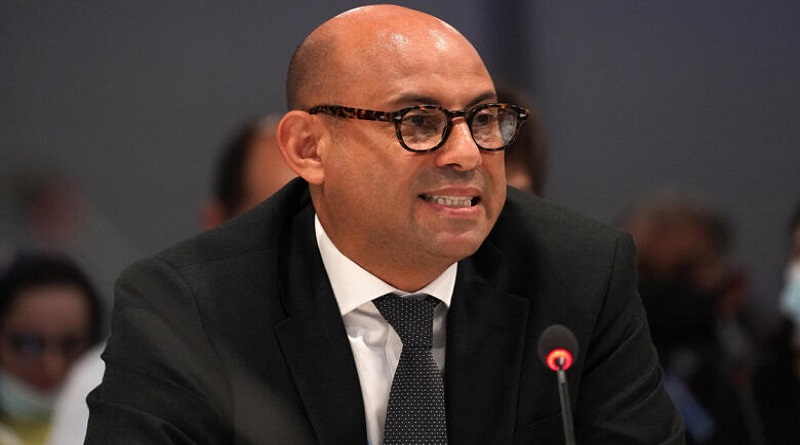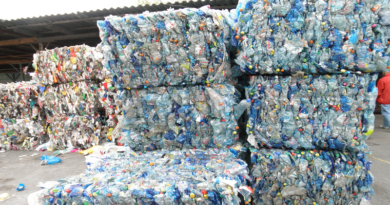Stakeholders explore integration of just transitions into national policy
Around 200 stakeholders from governments, climate funds, financial institutions, civil societies, academia, think tanks and the private sector met in person and virtually in Bangkok in July for a two-day Forum to discuss a timely and critical matter – Financing Just Transitions.
Entire economies and societies, including all sectors, must be transformed and redirected to a low-carbon and climate-resilient future. The forum helped build a common understanding of how to facilitate and finance transition pathways that aim to catalyze progress towards the goals of the Paris Agreement in the context of the sustainable development.
According to the International Labor Organization, bold climate actions could generate economic benefits of USD 26 trillion by 2030 compared to business as usual.
Alluding to this fact, UN Climate Change Executive Secretary Simon Stiell said in his opening remarks: “All countries and all people must have equal opportunities to harness this transition and benefit from it. Transitions must be fair, inclusive and just for everyone, leaving no one behind. That is the very spirit of the Paris Agreement.”
Participants agreed on the need to broaden the discussion of just transitions beyond the private sector and energy sector to include transport, agriculture, and forestry.
The conversations explored how just transitions can be integrated into national policy processes with inclusive governance and good policy and legal frameworks.
Several country representatives, including from India, South Africa, the Philippines as well as the European Union, showcased their efforts in integrating just transitions in their long-term national strategies and Nationally Determined Contributions (NDCs).
South Africa presented its national Just Transition Framework for a renewable energy-based economy with local industrial value chains. A key component of South Africa’s just transition is to build a resilient economy through affordable and decentralized renewable energy systems, allowing the country to shift away from its reliance on highly polluting coal.
The EU also shared information about the EU Just Transition Mechanism, including the EU Just Transition Fund, while highlighting the importance of reallocating finance to ensure benefits for people affected by transitions to sustainable economies.
India presented its Just Transition Finance Roadmap for India. The country emphasized innovative sources such as the Skill Impact Bond as well as the focus on vulnerable groups including informal labor forces and women.
The Philippines shared rich national experiences with the Green Jobs Act adopted in 2016. The country’s Green Jobs Certification Program is a concrete example of how incentives can be offered to the private sector to generate green jobs, thereby fostering low-carbon, resilient sustainable growth and the creation of green jobs.
Just transition principles feature in 38% of NDCs and 56% of Long-Term strategies to tackle climate change.
Participants noted that more detailed implementation plans, and increased climate finance are needed to effectively address the challenges and seize the opportunities of just transitions in country-specific and sector-specific pathways considering the local circumstances.
In addition, providing financing from all sources, including blended public and private finance, delivered through multilateral and bilateral channels is crucial to meet the diverse financing needs associated with fair, inclusive and just transitions.
International development finance and climate funds were listed as vital for developing countries to ensure socially and economically just transitions given their limited fiscal space and high levels of debt.
A range of conventional and innovative instruments and mechanisms were presented at the forum, such as fiscal incentives, investment de-risking, public-private projects and partnerships, market mechanisms, and just transition platforms and funds.
Holistic approaches in transitions were also highlighted. While there was a common understanding of focus on the workforce affected by transitions, many participants also underlined the importance of ensuring that vulnerable populations, including affected locally led groups, women, and youth, are part of the just transition agenda.
And there is a need for protective mechanisms that target affected communities. These communities include informal economy structures, small and medium-sized enterprises, smallholder farmers, and people relying on natural resources.
The Just Transitions Forum took place in Bangkok, Thailand on 17 – 18 July 2023. It was organized by UNFCCC’s Standing Committee on Finance (SCF) and co-hosted by the United Nations Economic and Social Commission for Asia and the Pacific (UNESCAP) and the government of Thailand. The outcome of the Forum will be summarized by the SCF for consideration at COP28 in Dubai at the end of the year.




